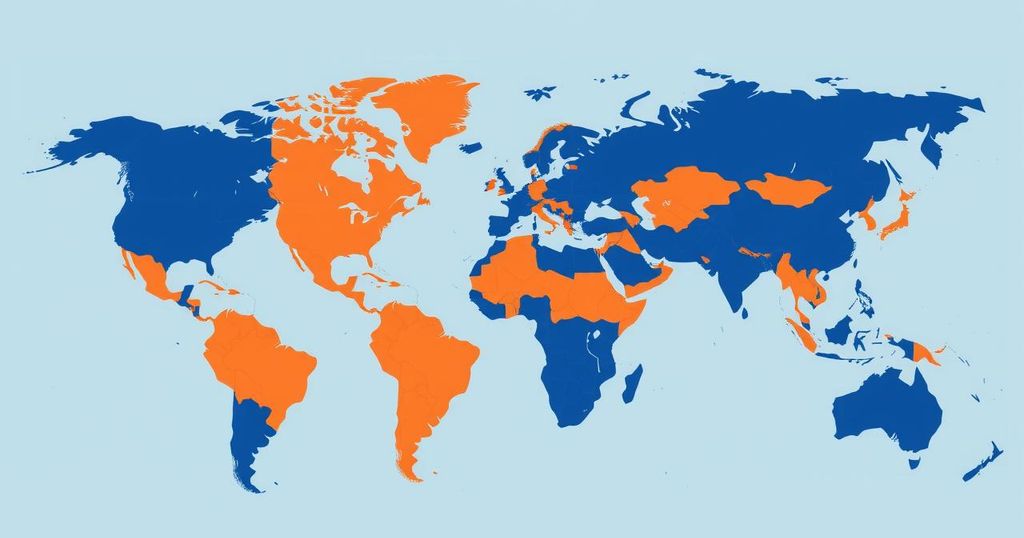Nigeria faces a rapidly changing global environment requiring a reassessment of its foreign policy. Traditional post-independence policies are no longer viable, necessitating an approach grounded in realism and African agency. Insights from prominent international affairs thinkers emphasize the importance of adapting to a disintegrating global order to maintain influence and credibility. Strategic opportunities lie in recalibrating Nigeria’s diplomatic initiatives and fostering leadership within Africa.
The global landscape is undergoing rapid and irrevocable changes, transitioning from a familiar structure of international relations to a multipolar, interest-driven reality. For Nigeria, which harbors continental ambitions but grapples with domestic challenges and weakened democratic norms, it is essential to recalibrate its foreign policy strategically. This moment calls for a reassessment of Nigeria’s role and approach in global affairs.
The Nigerian national security establishment—including intelligence, military, and foreign services—must adapt to this evolving global environment, as highlighted by the shifting priorities of global powers. Traditional foundations of post-independence foreign policy—such as alignment with Western ideals, reliance on moral authority, and Afrocentrism—are no longer adequate. A commitment to realistic, foresighted policy grounded in African agency is now imperative for Nigeria’s survival and prosperity.
Lessons from prominent international relations thinkers underscore this necessity. Notable figures such as Bolaji Akinyemi, Francis Fukuyama, Samuel Huntington, and Jeffrey Sachs collectively illustrate that only nations exhibiting clarity and conviction in their foreign policy will thrive amid a disintegrating global order. Emphasizing Nigeria’s unique position in this new context is essential for external influence and domestic governance.
Fukuyama warns of a global retreat from democracy and institutional integrity, emphasizing that Nigeria must enhance its domestic credibility and institutional strengths to reclaim its voice on the international stage. Huntington’s insights on identity politics suggest that Nigeria’s foreign policy must incorporate cultural awareness. Mearsheimer advocates for a focus on power over ideals, prompting Nigeria to seek sovereign interests without undue Western validation.
Sachs introduces the importance of sustainable development and justice as means to navigate the considerable inequalities and environmental challenges facing Nigeria. As nations vie for influence, Nigeria’s foreign policy should integrate development and green diplomacy to bolster its global position.
Professor Akinyemi envisions Nigeria leading an African initiative that transcends mere reaction to global norms, proposing a Concert of Medium Powers to shape international dynamics. Conversely, Professor Obiozor warned that without political coherence, any aspirational foreign policy would lack substance. These perspectives illustrate the urgent need for Nigeria to adapt amidst global transformations.
Nigeria faces several multifaceted challenges including the intensifying U.S.-China rivalry, climate change, and various security crises throughout the continent. These dilemmas threaten Nigeria’s trade, investment, and voice in global governance. The potential marginalization of African nations in international relations can only be reversed through proactive policy adjustments that prioritize African unity and cooperation.
Amidst these challenges, Nigeria holds distinct strategic opportunities to recalibrate its diplomatic stance. Emphasizing sovereignty and regional leadership is essential. By reinforcing its diplomatic infrastructure within ECOWAS and expanding strategic alliances, Nigeria can enhance its influence on a broader stage.
To facilitate this reconstruction of foreign policy, five key actions should be implemented: 1) Conduct a thorough presidential review of national security and foreign policy; 2) Propose an African Union summit to discuss continental perspectives on the global order; 3) Establish an active secretariat for the National Security and Defence Council; 4) Diversify Nigeria’s international partnerships; and 5) Incorporate sustainability and innovation into foreign engagements.
In conclusion, Nigeria stands at a critical juncture in its foreign policy development. The establishment of a robust foreign policy framework is vital for national survival and growth. Failure to adapt risks relegating Nigeria to a passive role in global affairs. Drawing from the combined wisdom of intellectuals like Akinyemi, Obiozor, and others poised for action, Nigeria must transition from outdated paradigms, clearly define its interests, act with resolute realism, and encourage a unified African voice. This approach is essential for Nigeria to assert itself in a rapidly shifting global landscape.
In summary, Nigeria must seize this pivotal moment to redefine its foreign policy in response to a fragmenting global order. By embracing strategic realism and asserting its leadership role within Africa, Nigeria can enhance its national interests and global standing. The insights provided by thought leaders and the pressing need for action illuminate a clear path forward: a proactive, coherent foreign policy is essential for Nigeria to navigate contemporary challenges successfully and maintain relevance on the international stage.
Original Source: businessday.ng






